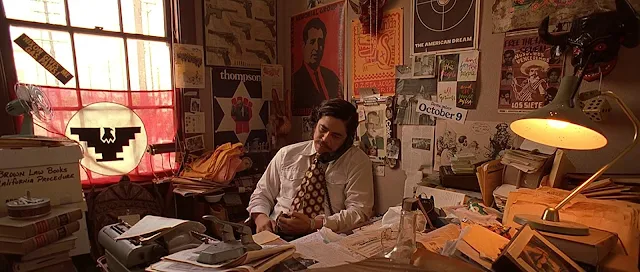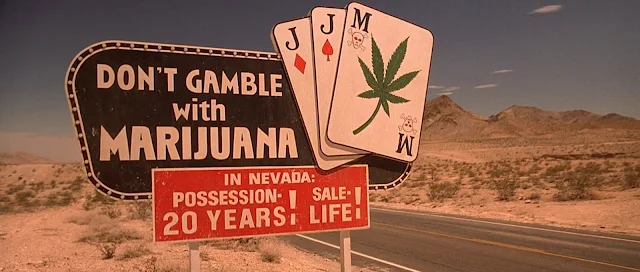A blog formerly known as Bookishness / By Charles Matthews
"Dazzled by so many and such marvelous inventions, the people of Macondo ... became indignant over the living images that the prosperous merchant Bruno Crespi projected in the theater with the lion-head ticket windows, for a character who had died and was buried in one film and for whose misfortune tears had been shed would reappear alive and transformed into an Arab in the next one. The audience, who had paid two cents apiece to share the difficulties of the actors, would not tolerate that outlandish fraud and they broke up the seats. The mayor, at the urging of Bruno Crespi, explained in a proclamation that the cinema was a machine of illusions that did not merit the emotional outbursts of the audience. With that discouraging explanation many ... decided not to return to the movies, considering that they already had too many troubles of their own to weep over the acted-out misfortunes of imaginary beings."--Gabriel García Márquez, One Hundred Years of Solitude
Search This Blog
Showing posts with label Alex McDowell. Show all posts
Showing posts with label Alex McDowell. Show all posts
Friday, September 27, 2019
Fear and Loathing in Las Vegas (Terry Gilliam, 1998)
Fear and Loathing in Las Vegas (Terry Gilliam, 1998)
Cast: Johnny Depp, Benicio Del Toro, Tobey Maguire, Katherine Helmond, Craig Bierko, Mark Harmon, Laraine Newman, Verne Troyer, Penn Jillette, Cameron Diaz, Lyle Lovett, Flea, Gregory Itzin, Gary Busey, Christopher Meloni, Christina Ricci, Michael Jeter, Harry Dean Stanton, Ellen Barkin. Screenplay: Terry Gilliam, Tony Grisoni, Todd Davies, Alex Cox, based on a book by Hunter S. Thompson. Cinematography: Nicola Pecorini. Production design: Alex McDowell. Film editing: Lesley Walker. Music: Ray Cooper.
Terry Gilliam's Fear and Loathing in Las Vegas invites the easy critical brush-off: What happened in Vegas should have stayed in Vegas. Many of its first-release critics, including Roger Ebert, certainly took that view. So did ticket-buyers, who stayed away. And even in hindsight it's a little hard to figure why the film was made when it was made. Hunter S. Thompson's book was published in 1971, and although there had been some earlier efforts to turn it into a movie, it was hardly fresh subject matter in 1998. But the film has developed followers over the years since, and it's now possible to appreciate the skill with which Gilliam takes on this recreation of a drug-maddened milieu, and especially the acting of Johnny Depp and Benicio Del Toro as the wildly tripping Duke and Dr. Gonzo. I will admit that Depp, 35 at the time, seems to me a little too young and fresh-faced for the dissipated Duke -- even though Thompson himself was pretty much the same age when the events he wrote about took place -- but it's one of his best performances. The film also benefits from an abundance of familiar faces in small roles, such as the underappreciated Ellen Barkin as a waitress unwilling to put up with abusive stoners. Fear and Loathing in Las Vegas probably has little value except as a portrait of the Nixon era as seen from the end of the Clinton era, and it's certainly an exhausting film to watch, but it's a unique experience.
Saturday, February 10, 2018
Fight Club (David Fincher, 1999)
 |
| Helena Bonham Carter and Edward Norton in Fight Club |
Tyler Durden: Brad Pitt
Marla Singer: Helena Bonham Carter
Bob Paulson: Meat Loaf
Richard Chesler: Zach Grenier
The Mechanic: Holt McCallany
Angel Face: Jared Leto
Director: David Fincher
Screenplay: Jim Uhls
Based on a novel by Chuck Palahniuk
Cinematography: Jeff Cronenweth
Production design: Alex McDowell
Film editing: James Haygood
Music: Dust Brothers
What if Dr. Jekyll didn't know he was turning into Mr. Hyde? Fight Club is essentially an exploration of that premise, turning Robert Louis Stevenson's sci-fi into psy-fi, a fiction based on a fantastical psychological premise. But Chuck Palahniuk's novel, and the adaptation of it by screenwriter Jim Uhls and director David Fincher, is more than that: It's also a satire on corporate commercialism and the grip it has on the soul -- particularly the male soul. The Narrator is a nebbishy corporate everyman, stuck in a job he hates, doing work that morally revolts him -- he calculates whether an auto manufacturer can get away with dangerously defective parts, whether a recall will be more expensive than paying off accident victims. He's insomniac, and finds that he can sleep only when he goes to support groups for people worse off than he is, sufferers from serious illnesses. At one session he meets Marla Singer, beautiful and frazzled, who also goes to these support groups because she wants to feel something that she can't find in her own routine life. Then on a business trip, during which the venality of his job becomes particularly clear to him, he meets a devil-may-care type named Tyler Durden, handsome, clever, and completely amoral. Returning from the trip he arrives to find that his apartment, the only thing he feels some pride in, has been blown up in what seems to be an accidental explosion. He has no place to go, so when he finds Durden's card, he moves in with him in a dreadful rundown old house on the edge of nowhere, and becomes drawn into Durden's life, including the formation of the titular club, in which men of various professions gather to beat one another silly. It's the ultimate catharsis for meaningless corporate drudgery. He also introduces Durden to Marla, and lies in his bed listening to the two of them having raucously noisy sex. Eventually, the sex and violence escalate, and when they reach the pinnacle of rebelliousness against establishment values, the Narrator has a revelation: He's Tyler Durden. Fincher beautifully finesses any literal-minded explanations, relying instead on Edward Norton's ordinariness and Brad Pitt's good looks, as well as some careful staging and cutting, to keep from turning this into a tale about dissociative identity disorder. Instead, it's a fable about the ordinary male's repressed desire to become a Brad Pitt, or as Durden puts it, "All the ways you wish you could be, that's me. I look like you wanna look, I fuck like you wanna fuck, I am smart, capable, and most importantly, I am free in all the ways that you are not." The first viewers of Fight Club were often distracted by the violence and failed to respond to the ideas the film is working with. Since then, it has grown in esteem, perhaps because its violence has become more routine in movies, but also because its apocalyptic ending irrupted into real life on Sept. 11, 2001. The film's power to provoke, to appall, and to stimulate argument makes it some kind of minor classic.
Subscribe to:
Comments (Atom)
















